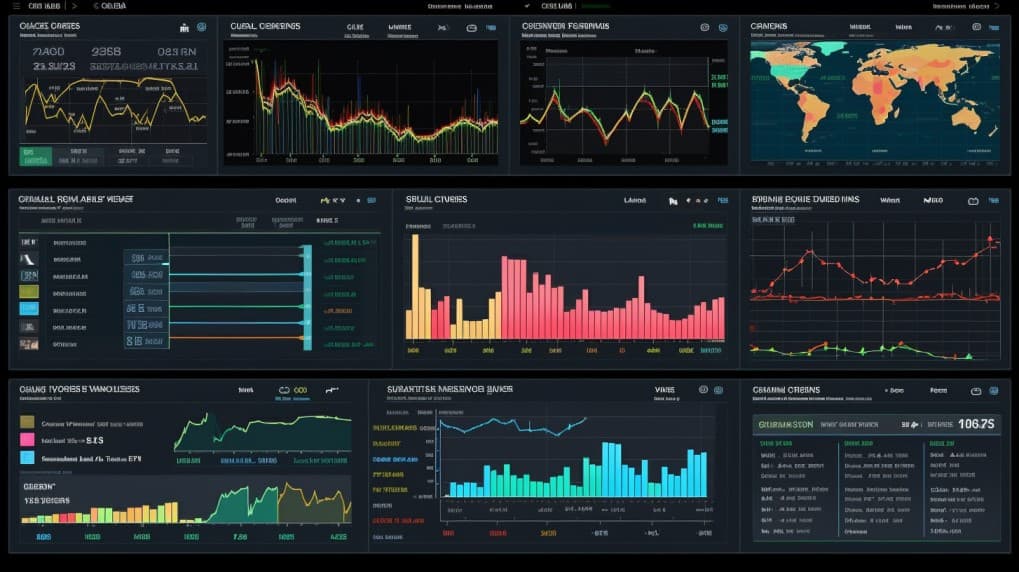
What is the PSC ETF?
Investing in the financial markets can be a complex endeavor, often requiring a deep understanding of various instruments and strategies. One such avenue is through Exchange-Traded Funds (ETFs), which offer investors exposure to a diversified portfolio of assets. In this article, we delve into the PSC ETF, shedding light on its intricacies, strategies, and potential benefits.
PSC ETF: Overview
The PSC ETF is a unique investment vehicle designed to provide investors with exposure to U.S. companies with small market capitalizations. Market capitalization refers to the total value of a company's outstanding shares, and small-cap companies are often characterized by their growth potential and volatility. The PSC ETF aims to capture the opportunities presented by these smaller companies and harness their growth prospects for potential returns.
Under its investment strategy, the PSC ETF allocates at least 80% of its net assets to equity securities of U.S. companies with small market capitalizations at the time of purchase. This strategy aligns with the Fund's objective of tapping into the potential growth of companies within the market capitalization range of the Russell 2000 Index, a well-known benchmark for small-cap stocks.
PSC ETF: Identifying Opportunities
One of the key elements that sets the PSC ETF apart is its utilization of a proprietary quantitative model crafted by Principal Global Investors, LLC ("PGI"). This model serves as the foundation for security selection and portfolio construction. It's designed to identify and rank equity securities of small-cap companies in the Russell 2000 Index based on several crucial criteria:
Value Characteristics: The model seeks out companies whose share prices are deemed low in relation to their fundamental value. This characteristic is indicative of potential undervaluation and can lead to attractive investment opportunities.
Quality Metrics: The model evaluates the quality of companies by considering factors such as profitability, earnings quality, balance sheet strength, and solvency. These metrics help identify companies with robust fundamentals.
Momentum Analysis: The model also assesses companies' momentum by analyzing their share prices and earnings trends. Positive momentum can signal the potential for sustained growth.
Weighting these characteristics equally, the model then places greater emphasis on securities that display liquidity and lower volatility. These factors contribute to the model's approach to creating a balanced and resilient portfolio.
[Image_placeholder]
PSC ETF: Strategic Management and Insights
The PSC ETF stands out not only for its quantitative model but also for its active management approach. The Fund's holdings are expected to be rebalanced at least annually, allowing for adjustments that reflect changing market conditions. Principal Global Investors, LLC ("PGI") maintains discretionary authority over adjustments to the model and the Fund's holdings.
In its management, PGI draws insights from diverse sources, including internal investment research, industry reports, and third-party data. These inputs aid in refining investment themes and identifying trends that may impact the Fund and its holdings. This approach highlights the Fund's commitment to staying informed and agile in a dynamic financial landscape.
Conclusion
The PSC ETF serves as an intriguing option for investors seeking exposure to the potential growth of small-cap U.S. companies. Through its proprietary quantitative model and active management, the Fund aims to identify value, quality, and momentum within its portfolio constituents. However, as with any investment, it's crucial for investors to conduct their due diligence and consider their risk tolerance and investment goals before investing in the PSC ETF.
Disclaimer: This article is for informational purposes only and does not provide investment advisory services. Investors should consult with financial professionals and carefully consider their investment decisions.
Sources: Data and information in this article have been derived from various reliable sources, including Principal Global Investors, LLC, and the official prospectus of the PSC ETF. The market capitalization range of the Russell 2000 Index is based on data as of September 30, 2022. "Russell 2000" is a trademark of FTSE Russell Company, and the Fund is not endorsed or sponsored by FTSE Russell Company.
PSC ETF issuer
PSC ETF official page
PSC quote and analysis
Discover the top holdings, correlations, and overlaps of ETFs using our visualization tool.
Our app allows you to build and track your portfolio.
To learn more about the PSC Principal U.S. Small-Cap Multi-Factor ETF, access our dedicated page now.
FAQ
What is the PSC ETF?
PSC ETF, is an exchange-traded fund that provides investors with exposure to companies operating in the relevant sector.
What is the underlying index that the PSC ETF aims to track?
PSC ETF aims to track the performance of a specific index, which includes companies involved in various aspects of the relevant industry.
What types of companies are included in the PSC ETF?
PSC ETF includes companies from the relevant industry, which may consist of specialized firms, equipment manufacturers, and other related entities.
How does the PSC ETF work?
PSC ETF functions by pooling investors' capital to purchase a diversified portfolio of related stocks, aiming to replicate the performance of the underlying index.
What are the advantages of investing in the PSC ETF?
Investing in the PSC ETF offers exposure to a specialized sector with potential for growth and innovation. It allows investors to diversify within the industry, which could experience significant advancements and expansion in the future.